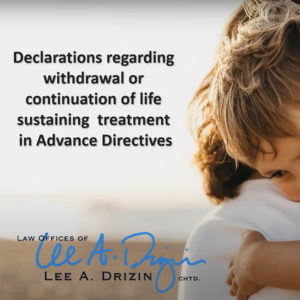Probate Sale: Basic Things You Need To Know
When a homeowner has passed away (the “Decedent”) and his or her home is owned solely in the name of the Decedent, a probate proceeding will likely be required. Probate is a court supervised process of ensuring that all of the Decedent’s assets are gathered, creditors are paid and the Estate is distributed to the beneficiaries or heirs. Frequently, during the course of the probate, there is a desire to sell the Decedent’s home and you may be contacted by a family member to assist. However, before a listing agreement can be entered into by a real estate licensee, the party signing the agreement must have authority to bind the Estate.
Ensure you are dealing with the authorized representative of the Estate
The person with authority to act on behalf of the Estate is known as the “Personal Representative” and is appointed by the Court. A personal representative is required to take into possession all the estate of the decedent, real and personal, and collects all receivables due the decedent or the estate. With respect to real estate, the personal representative can sell real property as well as bring actions to quiet title or for the partition of the estate. You should always request a copy of the Order appointing the Personal Representative as well as the Letters Testamentary or Letters of Administration for your file.
Reasons the Personal Representative may want to proceed with a real estate sale
In general, it takes six to nine months to complete a probate proceeding, assuming everything goes smoothly. In the meantime, there may be mortgage payments that have to be made, other carrying costs for insurance, utilities, and landscaping as well as concerns about vandalism of a vacant property. As a result, in many instances, the Personal Representative may want to proceed with the sale of the real estate rather than wait until the probate closes to deed the property to the beneficiaries so the property can be sold. Unfortunately, in many instances, trying to get all the beneficiaries to cooperate to complete a sale after the probate is close is unlikely and the sale during probate is a much more efficient manner for the Personal Representative to conclude the affairs of the Decedent.
A probate sale differs from ordinary transactions in a number of ways
A sale of real property of a Decedent must be confirmed by the Court. The probate attorney will file a petition with the Court. The hearing is scheduled by the Clerk’s Office and is generally set four to six weeks after the petition is filed. The hearing is an opportunity for the Court to determine the property is being sold for fair market value and members of the public can submit overbids to acquire the property. In other words, even though a buyer has a signed Residential Purchase Agreement, it is possible that they still are not permitted to acquire the property. The initial overbid must be at least $5,000 more than the proposed sale price. As a result, it is important for Buyers Agents to inform their clients of this possibility and the potential of not being able to recover their inspection and appraisal fees. However, the Buyer’s Agent of the original offeror is still entitled to a portion of the commission!
The Confirmation Hearing
At the Confirmation Hearing members of the public may submit additional offers to purchase the property. Real Estate Agents are often unfamiliar with this Court process which can easily cause problems in completion of a sale. Drizin Law successfully guides you and your agent through this process.
Selling real estate is often the greatest undertaking a personal representative or administrator will face during the probate process. Drizin Law will review the purchase agreement to make sure the appropriate language is included in counter offers. We also address disclosures that can create liability for the personal representative pursuant to NRS 113. In addition, we work closely with your agent to achieve a successful confirmation hearing.
If you are interested in learning more about the lucrative area of probate sales, please don’t hesitate to contact our office to learn about the next scheduled presentation of What Every Licensee Should Know about Sales in Probate and Guardianship, 3 credits, CE#3983000-RE.
For more than 30 years, Attorney Lee A. Drizin has practiced in the areas of estate planning, probate, trusts, guardianship and real estate matters representing clients throughout the state of Nevada.
Drizin Law is providing this information for educational purposes only. It should not be construed as legal advice or a legal opinion as to any specific facts or circumstances. This information is based on general principles of Nevada law at the time it was created and you should be aware laws frequently change. Moreover, the laws affecting you may differ depending on the circumstances. You should consult with a qualified attorney in your own state or jurisdiction concerning your particular situation. Review of this information does not create an attorney-client relationship.







